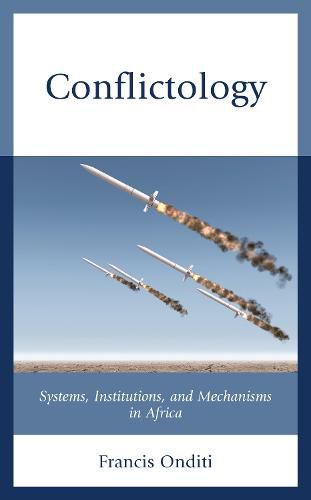Readings Newsletter
Become a Readings Member to make your shopping experience even easier.
Sign in or sign up for free!
You’re not far away from qualifying for FREE standard shipping within Australia
You’ve qualified for FREE standard shipping within Australia
The cart is loading…






Over the past three decades scholars, students and policy makers studying and engaged in conflict resolution have veered between conflict management and resolution. However, the changing nature of conflict, which is taking the form of radicalization and extremism are deeply rooted in individual’s ideology, personalities and genes, hence, rendering the conventional macro-level power balance analytics obsolete. The psychology and human genetics are at the center of this evolution. This shift in conflict trends and methods of warfare in Africa and the world over demands that we search for alternative approaches, mechanisms, and innovative response. It is against this background that this new book initiates a fundamental debate on how interdisciplinary adventure could increase the understanding off man-kind and the socio-biological systems surounding man, hence, the emphasis on the discispline of Conflictology to embody scientific approaches, methods and prescription to conflict resolution. For instance, does individual’s gene influence human behaviours, such as hate ? If so, can this be corrected through gene transposition? If human relations should be anchored on peace , what are these genetic and behavioural factors that creat hate and violence ? How then, should such a gene or neurobiological system be altered in order to prevent extremism and radicalization?
$9.00 standard shipping within Australia
FREE standard shipping within Australia for orders over $100.00
Express & International shipping calculated at checkout
Over the past three decades scholars, students and policy makers studying and engaged in conflict resolution have veered between conflict management and resolution. However, the changing nature of conflict, which is taking the form of radicalization and extremism are deeply rooted in individual’s ideology, personalities and genes, hence, rendering the conventional macro-level power balance analytics obsolete. The psychology and human genetics are at the center of this evolution. This shift in conflict trends and methods of warfare in Africa and the world over demands that we search for alternative approaches, mechanisms, and innovative response. It is against this background that this new book initiates a fundamental debate on how interdisciplinary adventure could increase the understanding off man-kind and the socio-biological systems surounding man, hence, the emphasis on the discispline of Conflictology to embody scientific approaches, methods and prescription to conflict resolution. For instance, does individual’s gene influence human behaviours, such as hate ? If so, can this be corrected through gene transposition? If human relations should be anchored on peace , what are these genetic and behavioural factors that creat hate and violence ? How then, should such a gene or neurobiological system be altered in order to prevent extremism and radicalization?